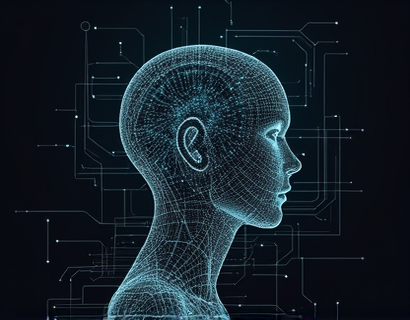AI-Powered Task Management: Elevating Personal and Professional Productivity with Intelligent Agents
In the fast-paced world of today, the demand for efficient task management solutions has never been higher. The integration of Artificial Intelligence (AI) into task management systems represents a significant leap forward, offering unprecedented levels of efficiency and productivity. AI-powered task management leverages intelligent agents to intelligently handle both personal and professional tasks, streamlining operations and enhancing overall efficiency. This technology is not just a tool but a transformative force that redefines how we approach task management, allowing individuals and businesses to focus on high-priority activities and maximize their potential.
The core idea behind AI-powered task management is to create intelligent agents that understand, predict, and automate tasks based on user preferences and work patterns. These agents are designed to learn from user behavior, adapt to new inputs, and perform tasks that traditionally required human intervention. By offloading routine and repetitive tasks to these intelligent agents, users can concentrate on strategic, creative, and high-value activities that drive growth and innovation.
Understanding AI-Powered Intelligent Agents
Intelligent agents in task management are sophisticated software entities that can perceive their environment through sensors (data inputs), act upon that environment through actuators (task execution), and use learning algorithms to improve their performance over time. These agents can be integrated into various platforms and applications, from calendar management and email organization to project tracking and inventory control.
One of the key features of intelligent agents is their ability to understand context. They can analyze emails, messages, and calendar entries to identify tasks, set reminders, and prioritize activities based on urgency and importance. For instance, an intelligent agent can recognize a meeting invitation and automatically update the user's calendar, send a confirmation to the organizer, and notify relevant team members, all without manual intervention.
Enhancing Personal Productivity
For individuals, AI-powered task management can significantly enhance personal productivity. By automating mundane tasks, such as scheduling appointments, setting reminders, and managing to-do lists, these intelligent agents free up valuable time and mental energy. This allows users to focus on more meaningful and productive activities, whether it's working on a personal project, spending time with family, or pursuing hobbies.
Personal AI assistants can also provide insights and recommendations based on user habits and preferences. For example, an intelligent agent might analyze a user's schedule and suggest optimal times for tasks, taking into account factors like energy levels, focus periods, and previous performance. This personalized approach ensures that users are not only more productive but also more efficient and satisfied with their daily routines.
Boosting Professional Productivity
In a professional setting, the benefits of AI-powered task management are equally profound. Businesses can leverage these intelligent agents to streamline workflows, improve collaboration, and enhance decision-making processes. Here are some specific ways AI can elevate professional productivity:
- Automated Task Assignment: AI agents can analyze project requirements and team member availability to automatically assign tasks, ensuring that the right people are working on the right tasks at the right time.
- Real-Time Updates: Intelligent agents can monitor project progress and provide real-time updates to all stakeholders, reducing the need for constant status meetings and keeping everyone informed.
- Predictive Analytics: By analyzing historical data and current trends, AI agents can predict potential bottlenecks and suggest proactive measures to mitigate risks, ensuring smooth project execution.
- Enhanced Collaboration: AI can facilitate better collaboration by suggesting optimal communication channels, summarizing meeting minutes, and keeping a centralized record of project discussions and decisions.
Moreover, AI-powered task management tools can integrate seamlessly with existing business software, such as CRM systems, project management tools, and communication platforms. This integration creates a cohesive ecosystem where data flows smoothly, and tasks are managed efficiently, reducing friction and increasing overall productivity.
Case Studies and Real-World Applications
Several organizations have already embraced AI-powered task management and seen significant improvements in their operations. For instance, a mid-sized marketing firm implemented an AI-driven task management tool to handle campaign planning and execution. The tool automatically assigned tasks based on team member availability and expertise, sent reminders for upcoming deadlines, and generated comprehensive reports on campaign performance.
The results were impressive: the firm reported a 30% reduction in project completion time and a 25% increase in client satisfaction. The team could focus on creative strategies rather than getting bogged down by administrative tasks. Another example is a large manufacturing company that used AI to optimize its production scheduling. The intelligent agent analyzed machine performance data, material availability, and labor schedules to create optimal production plans, leading to a 20% increase in output and a 15% reduction in costs.
Challenges and Considerations
While the benefits of AI-powered task management are clear, there are several challenges and considerations to keep in mind. One of the primary concerns is the initial setup and integration with existing systems. Implementing AI agents requires a thorough assessment of current workflows and a strategic approach to integration to ensure seamless operation.
Another consideration is data privacy and security. AI agents handle sensitive information, and it's crucial to implement robust security measures to protect user data. Transparency in how data is used and stored is essential to build trust and comply with regulations.
Additionally, there is a learning curve associated with adopting AI-powered tools. Users need to be trained to effectively utilize these agents and interpret the insights provided. Continuous support and updates are necessary to ensure that the agents remain effective and aligned with evolving user needs.
Future Trends in AI-Powered Task Management
The future of AI-powered task management is exciting, with several trends shaping its development. One prominent trend is the increasing sophistication of natural language processing (NLP) capabilities, allowing agents to understand and respond to complex commands and queries more accurately. This will make interactions with AI agents more natural and intuitive.
Another trend is the integration of AI with other emerging technologies, such as the Internet of Things (IoT) and augmented reality (AR). For example, an AI agent could monitor IoT devices in a smart office environment and adjust settings for optimal comfort and efficiency, or provide AR-guided instructions for complex tasks.
Furthermore, the focus on ethical AI and explainability is gaining momentum. As AI becomes more prevalent, ensuring that agents operate transparently and ethically is crucial. This includes providing clear explanations for decisions made by AI agents and ensuring that they do not perpetuate biases or unfair practices.
Conclusion
AI-powered task management represents a significant advancement in productivity tools, offering a blend of intelligence, automation, and personalization. By leveraging intelligent agents, individuals and businesses can streamline operations, reduce manual effort, and focus on high-value activities. While there are challenges to consider, the potential benefits are substantial, making AI-powered task management an essential tool for anyone looking to enhance their productivity in the digital age.











































